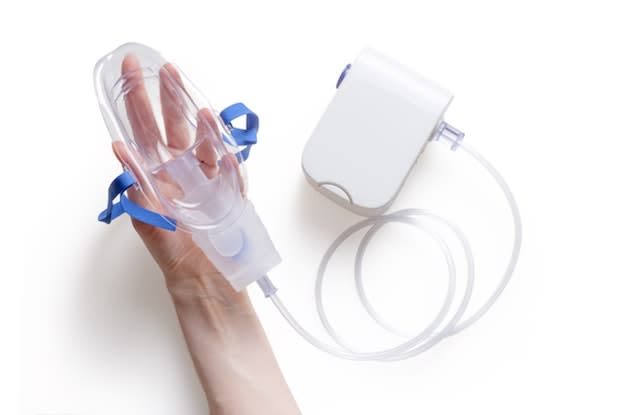Table of Contents
II. Asthma & the Respiratory System
Asthma Worldwide
Asthma is one of the most common chronic diseases in the world. This disease cannot be passed from person to person and is often inherited from genetics or developed due to environmental or lifestyle factors. As of 2016, the World Health Organization reports that 340 million people have asthma across the globe. Most people can maintain their asthma by using asthma medications like generic Advair HFA or Advair Diskus.
Those with asthma may have mild symptoms, but severe complications may develop if it is not properly treated. Generally, asthma is under-diagnosed and under-treated. For many people, asthma may go untreated if they cannot afford the maintenance medications required to keep asthma attacks at bay.
If you are worried about affording asthma medications like Singulair (montelukast), Flovent, or Asmanex Twisthaler, you can use a Canadian online pharmacy to find cheaper prescription inhalers. [1] If you have asthma or are at risk for asthma, read on to learn more about symptoms and treatments below.
In its essence, asthma affects the airways, limiting the amount of oxygen that enters the lungs. If you have asthma, the airways are more hypersensitive and become red and swollen. This hypersensitivity makes it easier for the airways to become irritated and react to triggers. When your airways are exposed to triggers, the airways swell even more. The muscles wrap tightly around the airways and tighten, making breathing difficult. This is known as an asthma attack. If you have asthma for long periods, your airways’ structure may change, called airway remodeling. This is a serious condition that may cause your lungs to scar and cause asthma medications to work less effectively. Airway remodeling is not guaranteed if you have asthma, but it is essential to follow your treatment plan to avoid this dangerous complication. [2] As mentioned, asthma varies greatly from patient to patient. Some people only have asthma at certain times, whereas others may have symptoms consistently. A person’s workplace may contribute to the development of asthma. Allergies and exercise may also cause symptoms. General signs of asthma include: More serious asthma symptoms may indicate an asthma attack. Asthma may change over time, so your medication dosage may need to be adjusted as time goes on. If you notice the following, you may want to contact your doctor for a follow-up exam: If you have never experienced asthma symptoms, they will become obvious quickly if you encounter an asthma trigger. Not being able to breathe fully is a scary feeling, and you should seek your doctor’s advice as soon as possible. Your doctor will initially perform a physical exam to rule out chronic obstructive pulmonary disease (COPD) or a respiratory infection. COPD often has similar symptoms to asthma. Once those conditions are ruled out, you may undergo the following tests: Spirometry test: You will take a deep breath in and then exhale. This test tells your doctor how much you can exhale and how fast you can breathe out. The results tell your doctor the narrowness of your bronchial tubes. Peak flow: This test is similar to a spirometry test but involves exhaling as hard as you can into a tube-like device. This device measures how hard you can breathe out, determining your peak flow level. The lower the reading, the less effective your lungs are functioning. Allergy testing: Asthma and allergies often go hand in hand. Allergies are a big asthma trigger, and if you do not know what you are allergic to, you won’t be able to avoid exacerbating your asthma. An allergy test may be performed through a skin or blood test. Once the allergens are identified, you may get allergy shots to prevent your reactions to those triggers. [3] Because it varies so greatly, doctors will try to classify your asthma into one of four categories. Determining your classification can help your doctor tailor your treatment plan and make sure you receive the right medication dosages. The categories include: There are several medications available to assist in asthma symptoms. Your doctor will likely encourage you to avoid your asthma triggers and follow a prescription treatment plan. Quick-relief inhalers and long-term inhalers are the two main types of medications used to assist in asthma symptoms. Long-term inhalers are taken daily to control symptoms. If the long-term drugs are not taken regularly, you are at an increased risk of suffering an asthma attack. Inhaled corticosteroids like Asmanex Twisthaler and Flovent HFA (or Flovent Diskus) help open the airways and prevent inflammation. Leukotriene modifiers like Singulair or combination inhalers like Advair may also be used. You should note that these inhalers do not treat symptoms immediately. [4] If you suddenly feel a shortness of breath or experience wheezing, you should reach for a quick-relief inhaler. Short-acting beta-agonists like Ventolin HFA Inhaler (albuterol) open up the airways quickly to rapidly ease asthma symptoms within minutes. These medications are helpful but should not be overused. Overusing quick-relief inhalers can cause dangerous complications. If you notice you are using your emergency inhalers more than once or twice a day, your asthma may not be well-controlled, and you should talk to your doctor. [3] The content in this article is intended for informational purposes only. This website does not provide medical advice. In all circumstances, you should always seek the advice of your physician and/or other qualified health professionals(s) for drug, medical condition, or treatment advice. The content provided on this website is not a substitute for professional medical advice, diagnosis, or treatment.
Asthma & the Respiratory System
Asthma Symptoms

Diagnosing Asthma
a. Asthma Classifications
Get savings updates for Advair Diskus

Treatments for Asthma
